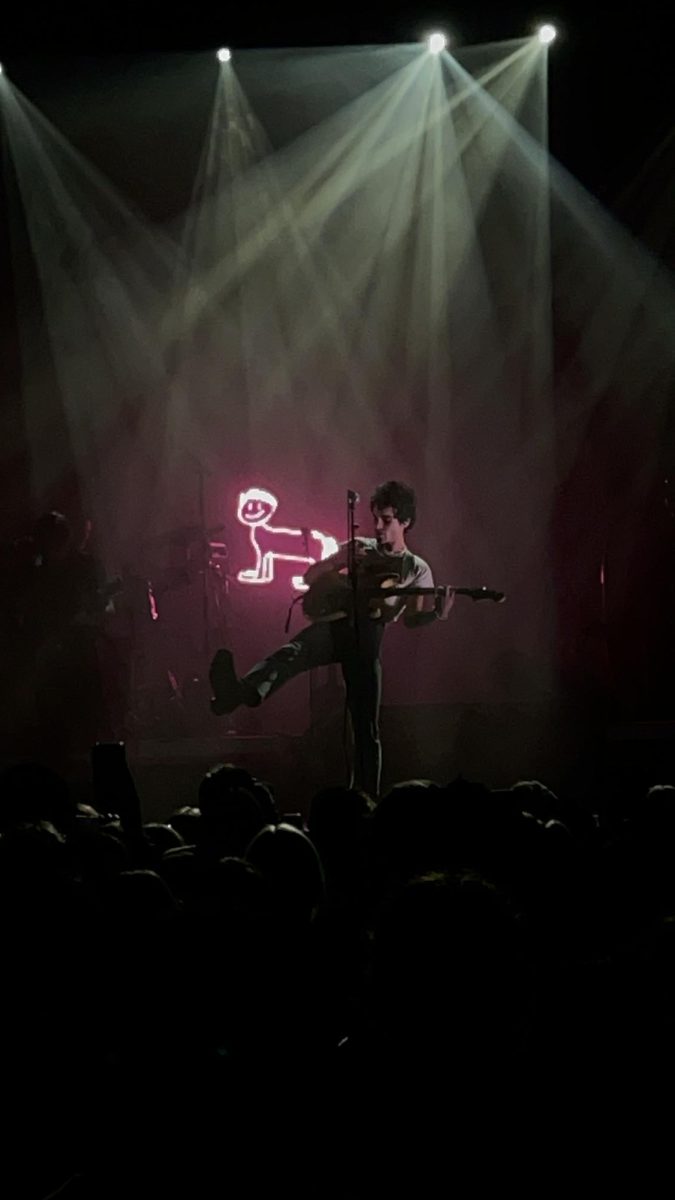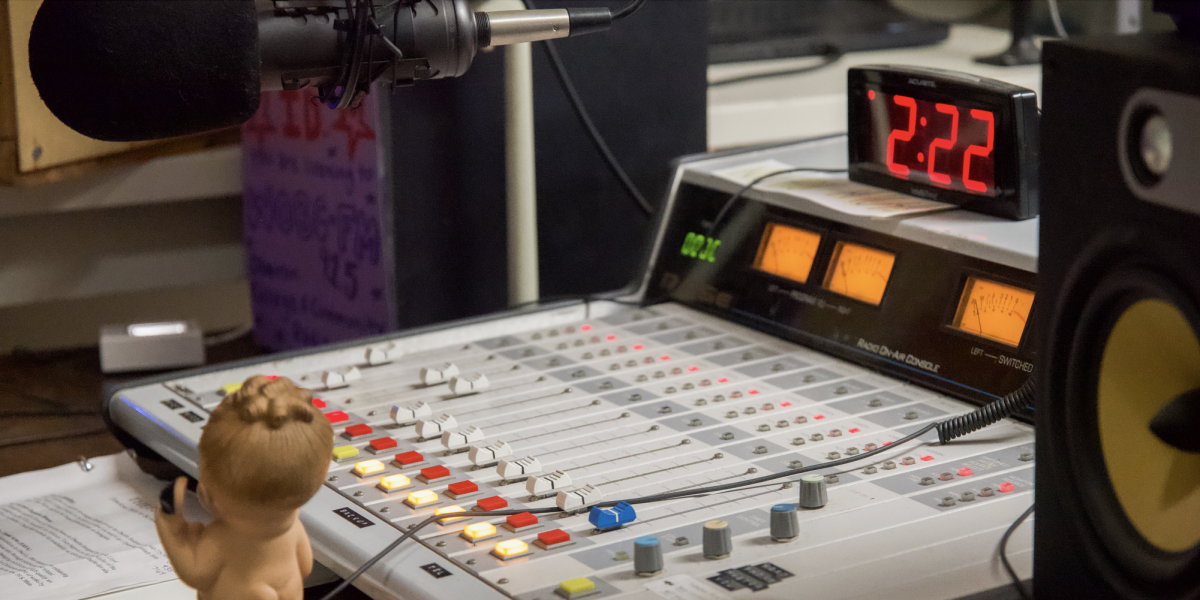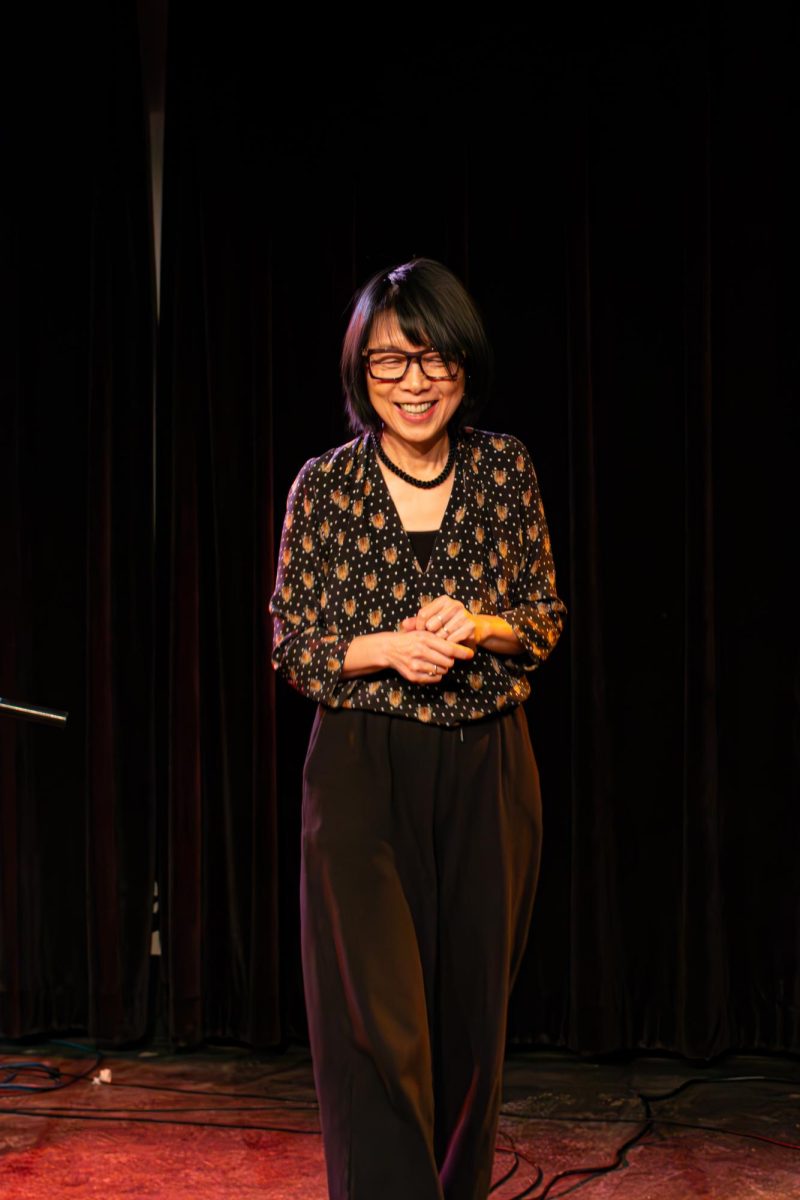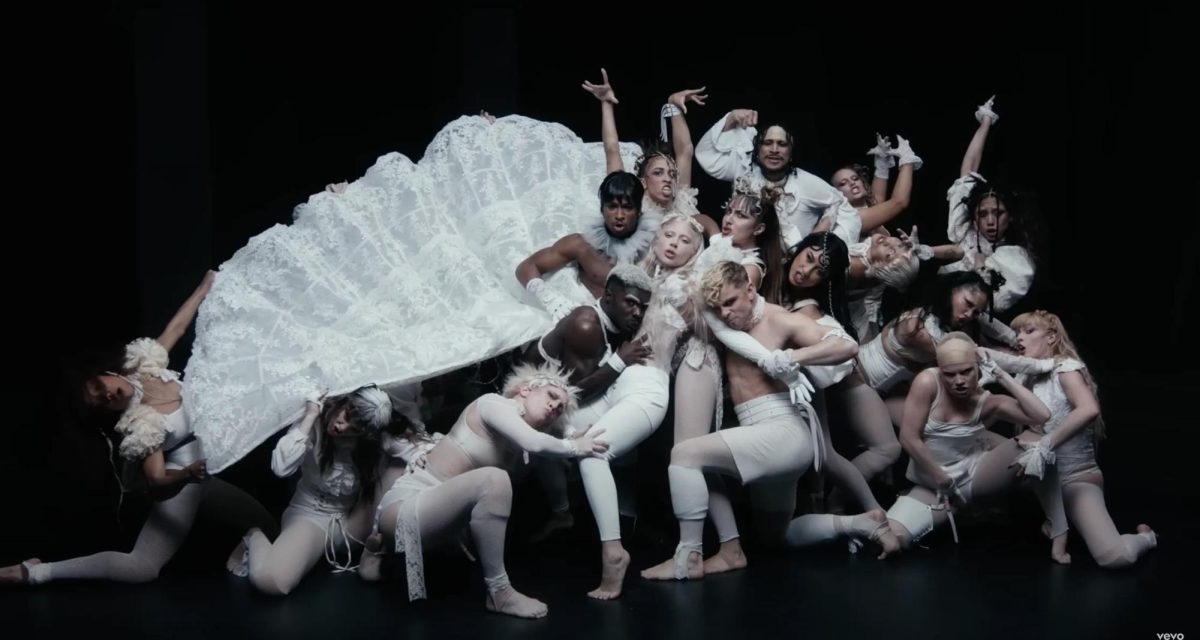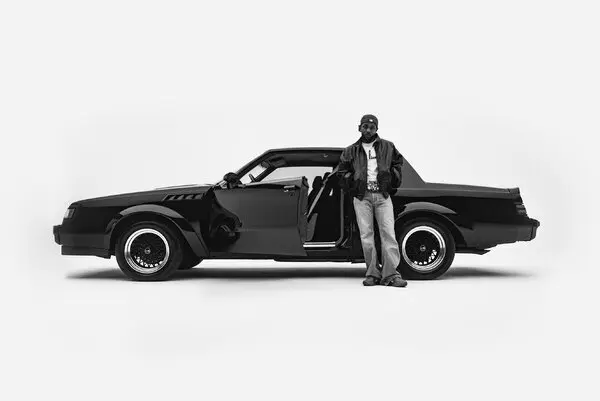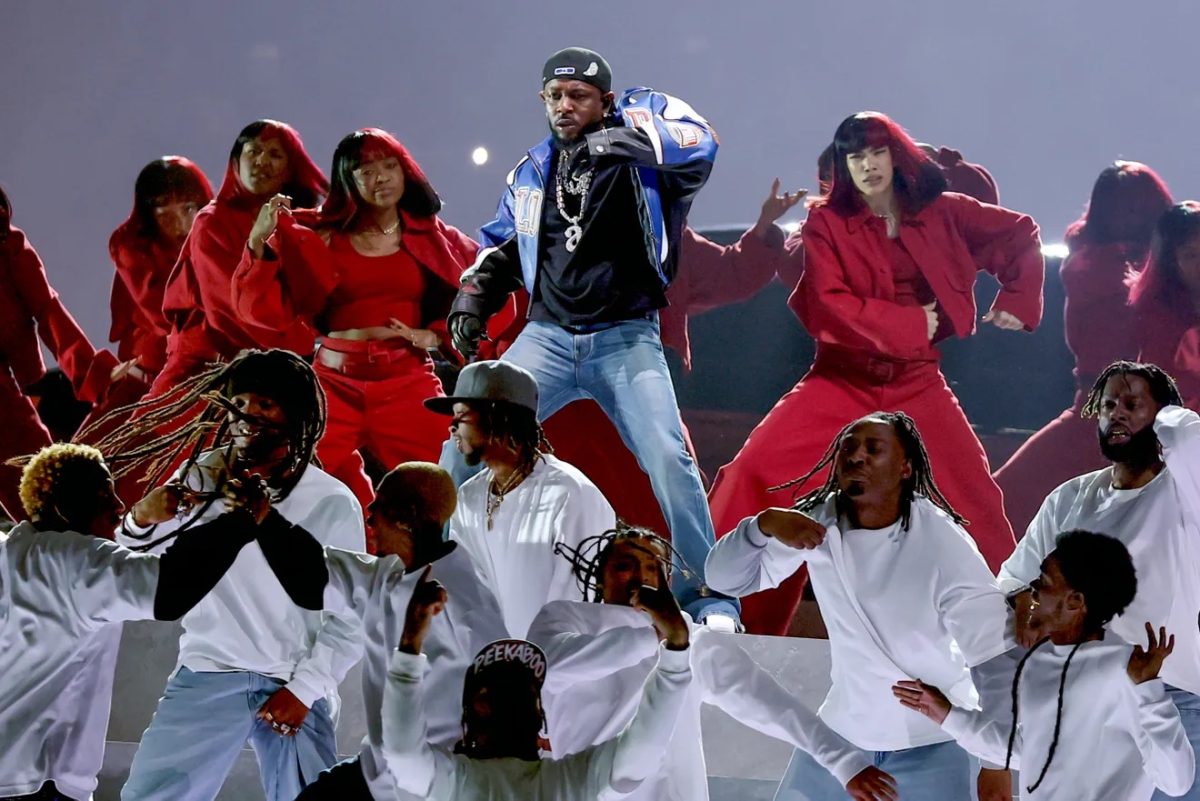On Monday night, a friend and I made the two-hour trek to Columbus to see Del Water Gap perform at Newport Music Hall. My partner called us ridiculous for four hours of driving on a weeknight, but I have become a bit of a concert fiend over the last few years, and I assured her it would be worth it. By the end of the show, I was confident that it was, but the concert admittedly had a bit of a rocky start.
To open the show, a long, somber instrumental section came through the speakers — so long that the audience’s cheers faltered. Then band members and, finally, Samuel Holden Jaffe hopped on stage. The upbeat introduction to “NFU” started playing, and Jaffe ran and danced across the stage.
The first thing my friend said to me was, “Oh my god, he is so drunk right now.” Sure enough, he had a sway in his step, and when he started singing, he clutched the microphone like a lifeline. Sometimes he leaned at an angle, and other times he’d point at the audience with a limp, awkwardly outstretched hand. Whether or not he was actually under the influence is impossible to know, but be that as it may, his stage presence suggested that he was quite intoxicated.
The first few songs he played were fine and the crowd reacted appropriately. However, there wasn’t that feeling of being one living, breathing organism that I long for at concerts. The reason I go to concerts is because it feels magical to hear hundreds of voices echoing my favorite songs, to feel like I’m a part of something larger than myself. Initially, I didn’t get that from the DWG show. Of course, the reactions of the crowd are not entirely caused by the singer, but there was a disconnect that I think both parties contributed to during Monday’s show.
The most profound disappointment I had was when Jaffe performed “Chastain.” It’s one of his older songs that resonated with me when I was a senior in high school. I listened to it on repeat during the pandemic — it both brought me to tears and comforted me at the same time. But I just wasn’t that impressed with seeing it live. Up until then, I was a firm believer that the live version of a song is always better than the recording. Jaffe, unfortunately, proved me wrong; it was choppy, offbeat, and the instrumentals quickly became way too loud for a song that is slow and melancholic. I couldn’t hear the same emotion in his voice at the show; his singing was stoic at best, slurred and messy at worst. One of the most powerful lines in the song, “I don’t wanna be a ghost when I’m dead / I think I’m tired of jumpscares,” didn’t feel like a gut punch at all — they were just words. It most certainly did not have the cathartic effect I had expected.
The show continued, and I was feeling pretty sour. The song I’d looked forward to most had come and passed, and I was unimpressed. A turning point was marked, thankfully, when Jaffe gave a speech between “Alone Together” and “Glitter & Honey.” The speech was somewhat eloquent, somewhat predictable, and can be summarized along the lines of “I wrote these songs when I was doing pretty poorly, but hey, it got better for me, so if you’re doing poorly, don’t worry too much, it’ll get better for you too.” It was simple but sweet, and it resonated.
From then on, the atmosphere steadily improved. Jaffe’s vocals began to shine through more, and I remembered the reason I like DWG so much. So many of his songs have a desperate sense to them — they are dramatic in the best way possible. There is an urgency to his ballads about love and heartbreak, I listen to his songs and I feel like I’m on the cusp of something big. He stacked the last part of the set with some of his most upbeat songs, which I think worked to his advantage. He had a bit too much energy for some of the slower, sorrowful numbers, but this energy was what ultimately engaged the crowd with his last five or so songs before the encore. Finally, the crowd had seemed to warm up. During “Perfume” and “All We Ever Do Is Talk,” the whole audience was jumping and singing along — we felt like one connected being. The end of the show is what I’ll remember the most, and with quite a bit of fondness.
For the encore, Jaffe finally seemed to get the note of desperation that is so prominent in his recorded music with “We Will Never Be Like Anybody Else.” As he belted out the impassioned lyrics, I wondered if, perhaps, he was just nervous at the beginning of the show. Maybe that was why “Chastain” felt rushed, and this one was so gripping. The finale of the show, “Ode to a Conversation Stuck in Your Throat,” was strong. I left the venue, bought the obligatory band T-shirt, and overall, felt satisfied.


